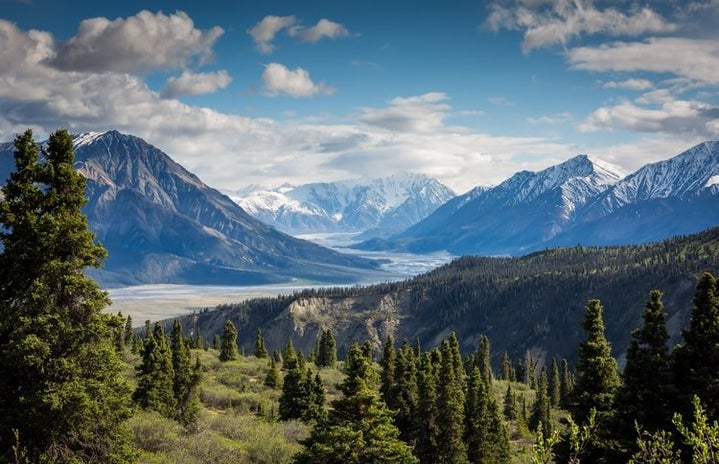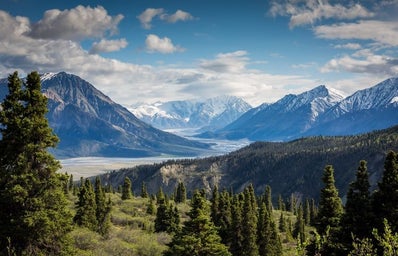For decades, the extractive industry — especially oil, gas, and mining — has driven economic growth across the world. According to the Global Resources Outlook, resources are now being extracted from the planet three times faster than in 1970. While resource extraction is crucial for fuel, food, and minerals, previous studies indicate that extractive industries are responsible for half of the world’s carbon emissions and more than 80% of biodiversity loss.
One community, in particular, has continually suffered from the consequences of unsustainable resource extraction: Indigenous Peoples. Many Indigenous groups live in resource-rich and biodiverse regions. In fact, it has been reported that Indigenous Peoples safeguard 80% of the planet’s biodiversity. Yet their lands are often appropriated, sold, leased, or plundered and polluted by governments and companies. While extractivist practices are not unique to Indigenous land, the legacies of colonization and modern-day exploitation and expropriation have posed significant threats to such communities.
“Resource extraction powers our everyday lives, while we are mostly unaware of its ramifications,” said Elizabeth Fortson, Logistics Subcommittee member. “It’s important to be aware of the impacts of our lifestyle, specifically on a group that has been largely absent in taught history and mainstream focus.”
Too often, Indigenous Peoples are left out of the decision-making process. Thus, business interests are frequently prioritized and Indigenous communities are left with little recourse other than protesting to protect their communities.
Many examples come to mind: the We’tsuwet’en blockading their traditional territory to stop the Coastal GasLink pipeline, the Tiny House Warriors fighting the Trans Mountain expansion, tens of thousands of people gathering at Standing Rock to oppose the Dakota Access Pipeline, and the protests in Minnesota against the Line 3 pipeline.
But this doesn’t just pose legal or economic issues. In recognizing how land plays an integral role in the cultural, spiritual, and religious lives of Indigenous Peoples, these extractive projects are ultimately a grave environmental justice issue.
“The land that we currently occupy has been stolen from Indigenous people, whose cultural and spiritual practices account for the protection of this land and its resources,” said Medhini Sosale, Curriculum Subcommittee member. “It’s incredibly important to center their perspective and learn from them as we work in environmental justice.”
That’s why this year’s Virginia Environmental Justice Summit (VEJS) planning committee chose one focus for the conference to be just that: how extractivist practices and policies continue to impact Indigenous land rights and what we can do to mitigate such injustice.
“Indigenous rights are often overlooked, and yet are incredibly important to fight for, even locally,” said Kathryn Hammond, Curriculum Subcommittee member. “We use resources from land taken from Indigenous peoples every day and need to recognize and understand the impacts this has on both them and the environment.”
Started in 2020 by George Mason University’s Student Environmental Justice Alliance, VEJS is focused on uniting people from across the state and nation to talk about equity and the environment.
Environmental justice (EJ) is about dismantling unsustainable and unjust systems that continue to cause a disproportionate impact of environmental burdens on people of color.
“Environmental justice is a crucial connection between environmental health and human rights that is important for understanding complex environmental issues,” Hammond said. “Learning what can be done through activism and policy is needed to make lasting change where people and nature can coexist, and where no group of people is affected disproportionately by environmental disasters.”
This third conference, being held virtually on March 26, 2022, and co-sponsored by George Mason University’s Native American & Indigenous Alliance, builds on the lessons of last year’s Summit to highlight the connections between environmental degradation and social inequity.
In sessions held throughout the day, attendees will connect with university faculty, researchers, authors, activists, and professionals to learn about ongoing work in the environmental justice field and how to take actions to help their communities overcome systems of oppression.
A variety of topics will be explored at this free and virtual event, including workshops aimed at empowering students and community members to continue investigating environmental injustices and ultimately be catalysts for change.
“For those who are unfamiliar with environmental justice, the Summit provides a solid introduction to both commonly discussed concepts and concrete actions that can be taken,” Sosale said. “The Summit also provides opportunities to network with others in the field,” she added.
Undergraduate and graduate students of all educational backgrounds from throughout Virginia and the nation are encouraged to register, although anyone interested in learning about environmental justice is welcome to attend.
Starting the event is a keynote speech from Dr. Jeremy M. Campbell, a cultural anthropologist with over two decades of research experience collaborating with Indigenous and other communities in the Brazilian Amazon. Some other speakers and topics include Dr. Travis Williams from Virginia Commonwealth University, who will talk about racial ecologies of the South; Dr. Celeste Murphy Greene from the University of Virginia, who will speak on COVID-19 and health equity in Virginia; and Sofia Gilani, a climate action advocate for Green Muslims who will provide information on diverse backgrounds in environmental justice.
More information about the event agenda, the wide variety of featured speakers, and registration can be found at VirginiaEnvJustice.org.
“Our hope is that everyone who attends the summit leaves with the knowledge and skills needed to get involved in environmental justice at any level,” Fortson said.


